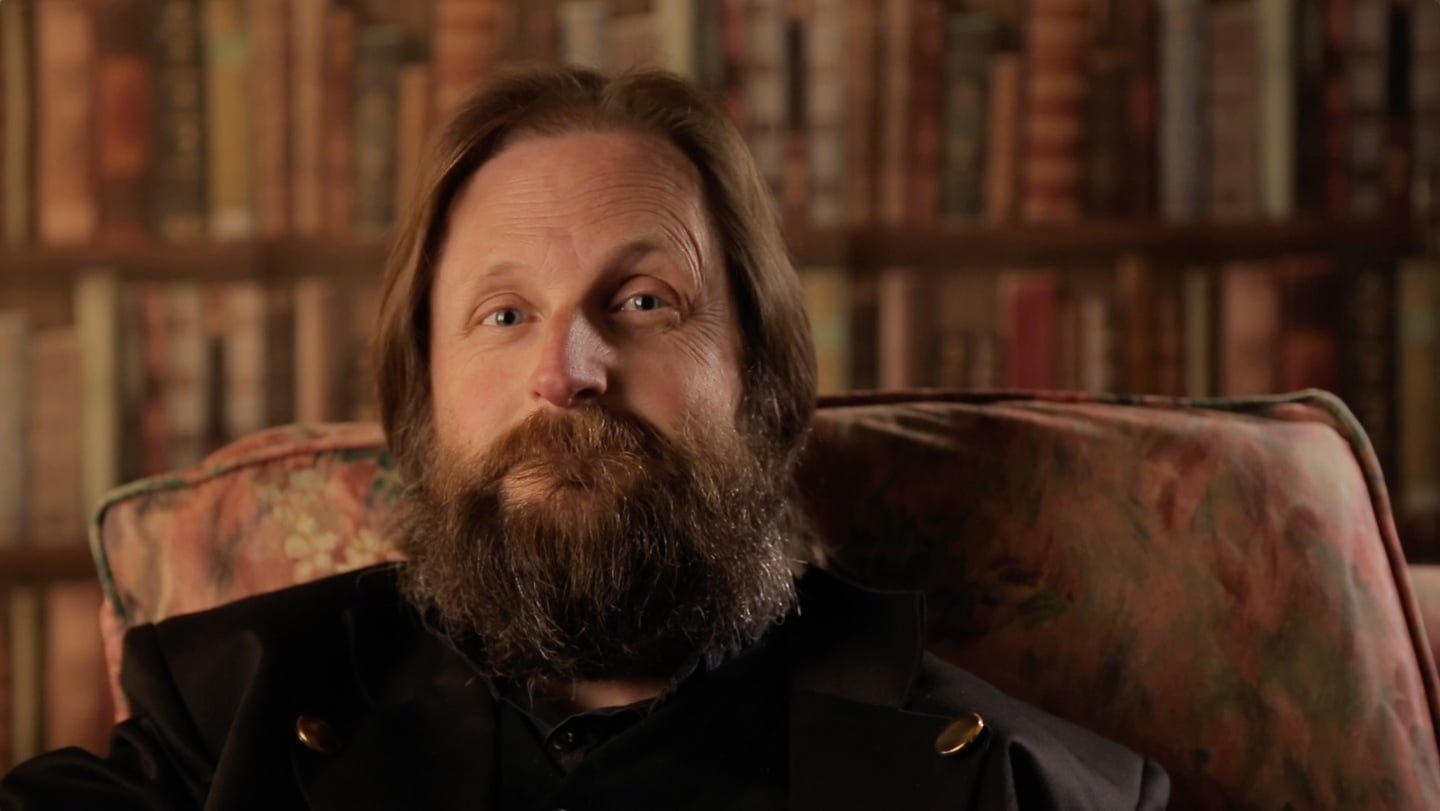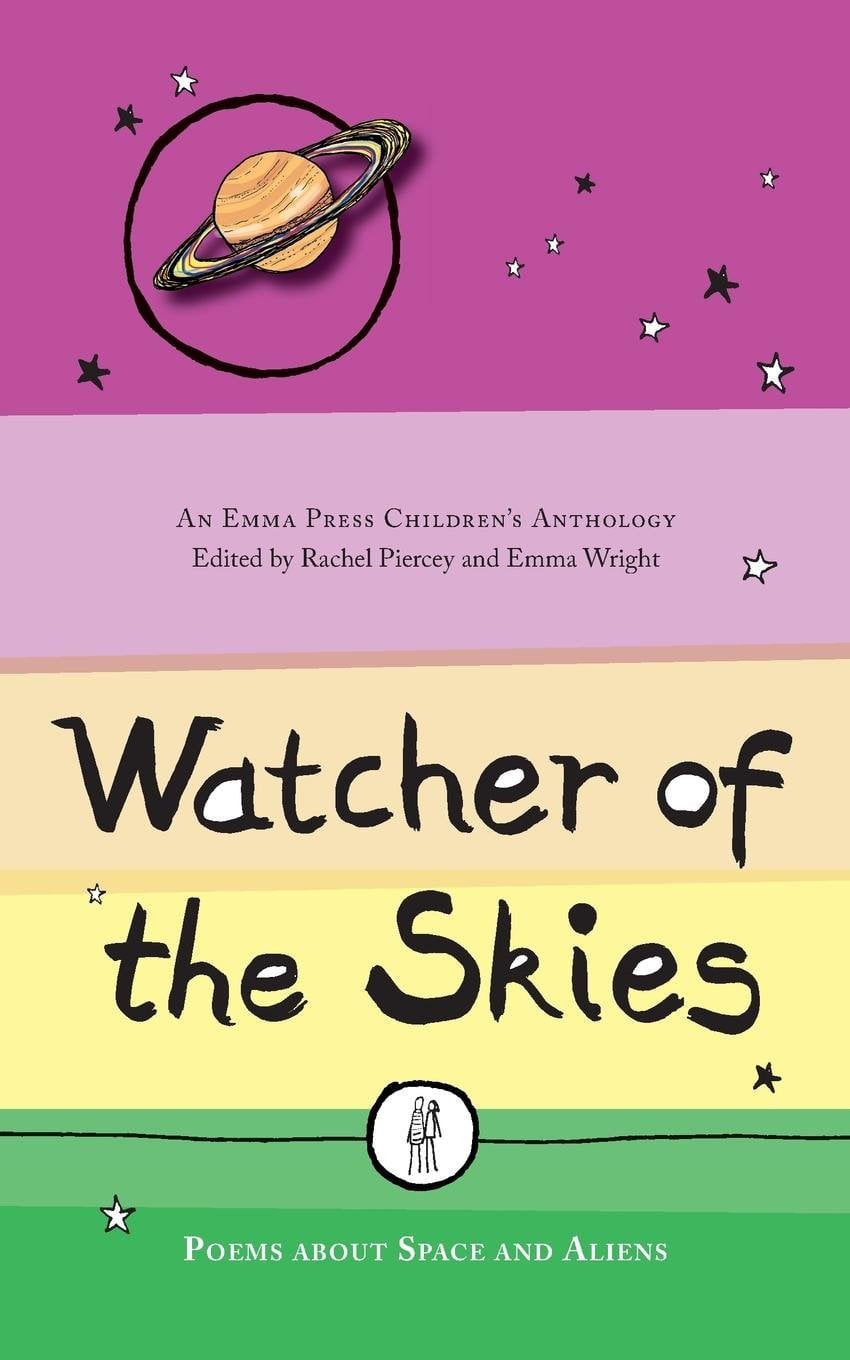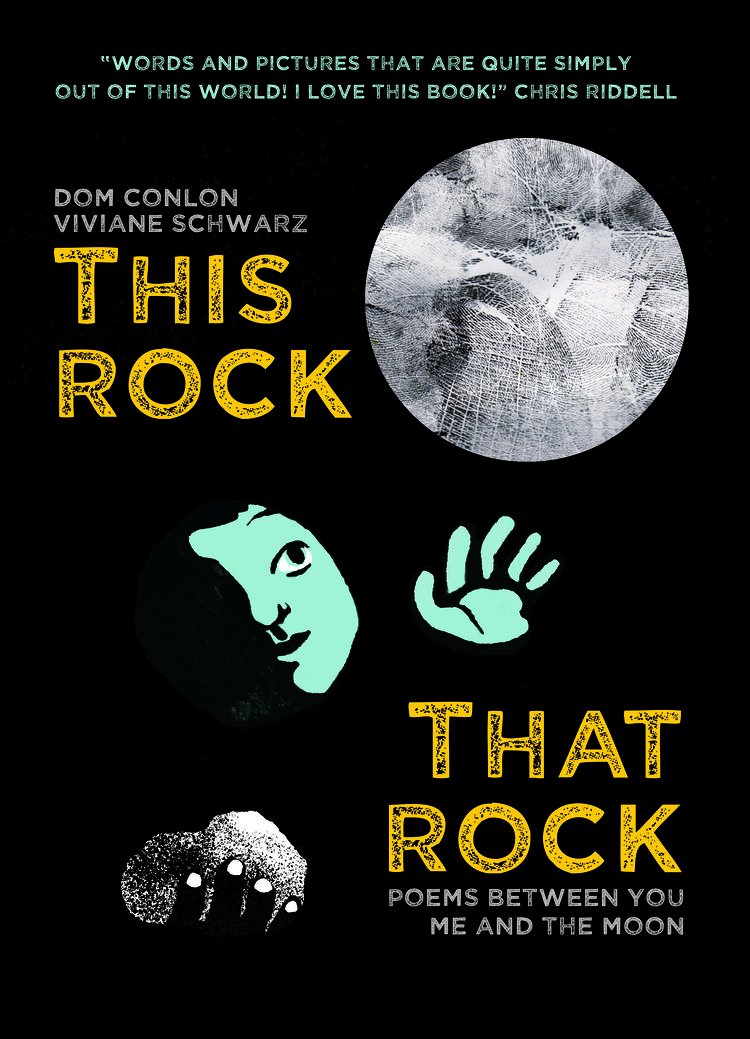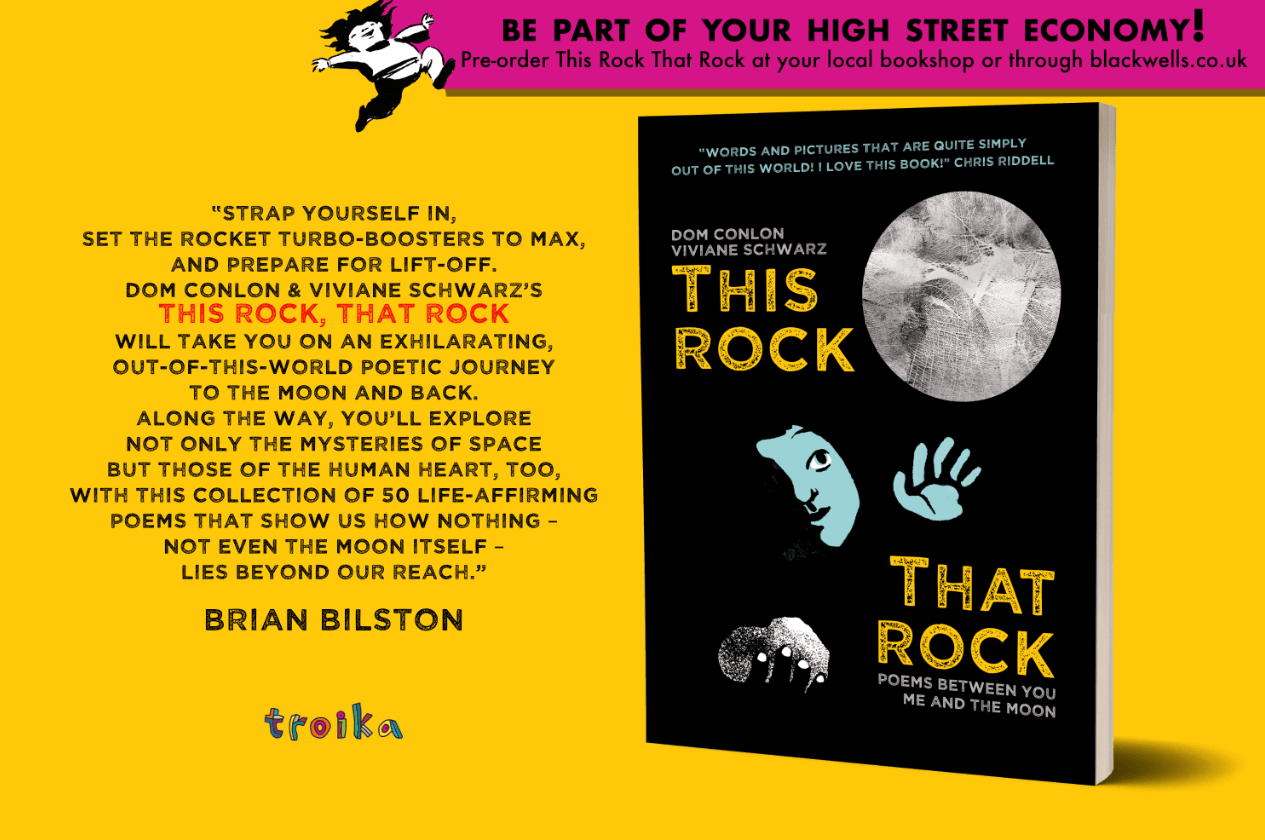We’re thrilled to have a friend of The Reading Realm, children’s poet Dom Conlon, rocket and zoom into #TheRealm today to talk about his brand-new anthology of moon poems called This Rock That Rock, which is illustrated by Viviane Schwarz!

Without giving too much away, I’ve heard that you have a new poetry anthology for children coming out next year! Could you give us a clue as to what it’s about?
I have! And it’s called This Rock That Rock, Fifty Poems Between You, Me and the Moon. It’s illustrated by Viviane Schwarz, although that became more of collaboration because her perspective became an important part of the book. It’s inspired by our nearest neighbour and the first alien world we set foot upon. I’ve been a bit of a moon fan for many years, ever since my folks bought me a telescope. Seeing the craters up close is life-changing and for me that’s what space exploration is all about—changing our lives so that we make this world better for everyone on it.
This slideshow requires JavaScript.
How is your new collection of poems similar to your first collection, Astro Poetica? How is it different?
Astro Poetica was a whirlwind tour of the solar system (and beyond), taking in planets and big concepts such as infinity and what the Big Bang means. This Rock That Rock is more personal. It still explores the scientific and historical moon, but it also explores the myth and future of it. And I put a lot of myself in (as did Viviane) to explore how it helped me with grief and joy.

When did you first start writing poetry? Why poetry and not, say, children’s fiction?
I am RUBBISH at writing fiction. It’s a constant struggle. Yet I have so much to say and find that my way is through poetry. I began in high school when my English teacher of the time let me use his office to write in during lunchtimes and/or PE classes. This continued through A levels (aided by two amazing teachers, one of whom I’m still in touch with) and even survived university. I see myself as a poet but that’s a label I’ve only slowly warmed to. Somehow I felt writing poetry was so natural that I couldn’t be doing it right so I resisted being a poet and worked to write other things (such as fiction) which I find much more difficult.
I still resist ‘children’s poet’ though because all I can do is to write my truth and let the audience find it for themselves.
You have work published in another poetry anthology called Watcher of Skies. Can you tell us about this anthology and how teachers could use it in class?
Watcher of the Skies is a wonderful anthology, published by The Emma Press. I was contacted by the amazing (truly stand out talent) Rachel Piercey who needed a poem about all the planets. She’d read Astro Poetica and gave me a chance. I remember a friend coming to meet me in a cafe as I was writing it and I had to say SHUT UP because I was seized with an understanding of what the poem had to be. Rachel read it and suggested some changes and helped shape it into what she eventually published. That was a great experience for me.
I think schools will find ideas in the book which can explore so many aspects of what it means to be alive. There’s a lot of fun and a lot of knowledge, but also a lot of sensitivity and poignancy. I really am in the company of such talented poets in that book, many of whom I now count as friends.

I know you also have another career as a copywriter – how does this impact on your own writing?
It keeps the lights on, dim as they are. Writing to a brief is one of my favourite things. Even writing poems to a brief is a joy. It provides a framework and focus which inspires me. I love a problem to solve and that’s what copywriting does.
I know you visit lots of schools and run poetry workshops. What are your top tips for schools for making an author visit run smoothly?
CAKE! Actually, no. I don’t eat at all when I do a school visit. I drink water and talk far too much. My top TOP tip is for teachers to sit in amongst the children and join in with ideas. Write poetry. Make mistakes. Some of the exercises I do demand the children be honest or give an opinion which may or may not chime with my own. I’d like teachers to do this too.
I always say poetry has TOOLS not RULES and seeing a teacher disagree with me really helps.
Finally, can you describe your new anthology in three words?
Mysterious. Tangible. Hopeful.




